Does the “Bình Ngô đại cáo” represent a decision to break away from an empire and to enter “a pre-existing international order” as “equal to other, similar states” by seeking the approval of the other states in that international order?
“No.”
The easiest way to see this is by looking at how Chinese wrote about this period of history. I came across a text from the late Ming period called the Illustrated Treatise on An Nam (安南圖誌 An Nam đồ chí) which contains a brief historical summary of the relations between the Ming and Đại Việt during the fifteenth century. I have read the actual documents that were exchanged between the Ming and Đại Việt during this period and they reflect the same viewpoint and terminology.
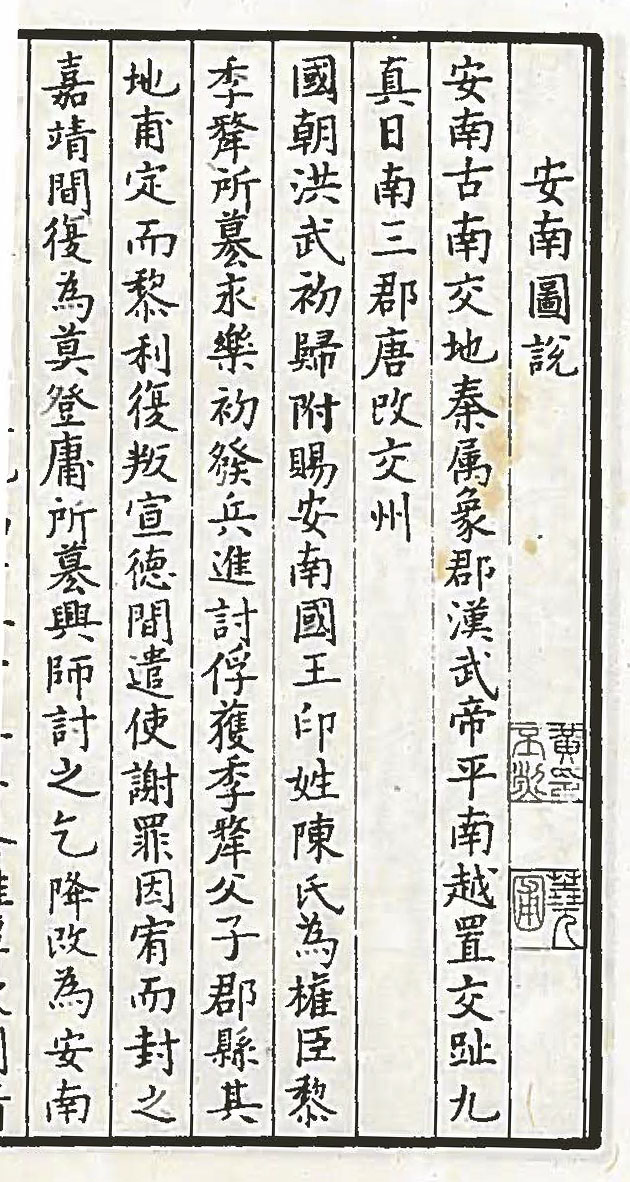
This text states that at the beginning of the period of Ming Dynasty rule, the Trần Dynasty monarch submitted to the authority (歸附 quy phụ) of the Ming and was granted an official seal that indicated he was the “King of An Nam” (安南國王 An Nam quốc vương).
Hồ Quý Ly then usurped control from the Trần. The Yongle Emperor sent an army to “enter and punish” (進討 tiến thảo) and it captured Hồ Quý Ly and his son and “district and commanderied the land” (郡縣其地 quận huyền ký địa), meaning it administratively incorporated the region directly into the Ming empire.
Lê Lợi then rebelled. However, during the Xuande era (1426-1435), Lê Lợi sent an emissary who “admitted guilt” (謝罪 tạ tội). Lê Lợi was therefore forgiven and “invested” (封 phong) with the power to rule over An Nam.
During the Jiajing era (1522-1567), Mạc Đăng Dung usurped the power of the Lê. The Ming sent an army to punish him, but he surrendered first and was granted the position of “Supreme Commissioner of An Nam (安南都統使 An Nam Đô Thống Sứ Tư), as the Ming emperor demoted An Nam from a “kingdom” (國 quốc) to a “supreme commission” (都統使司 đô thống sứ ty).
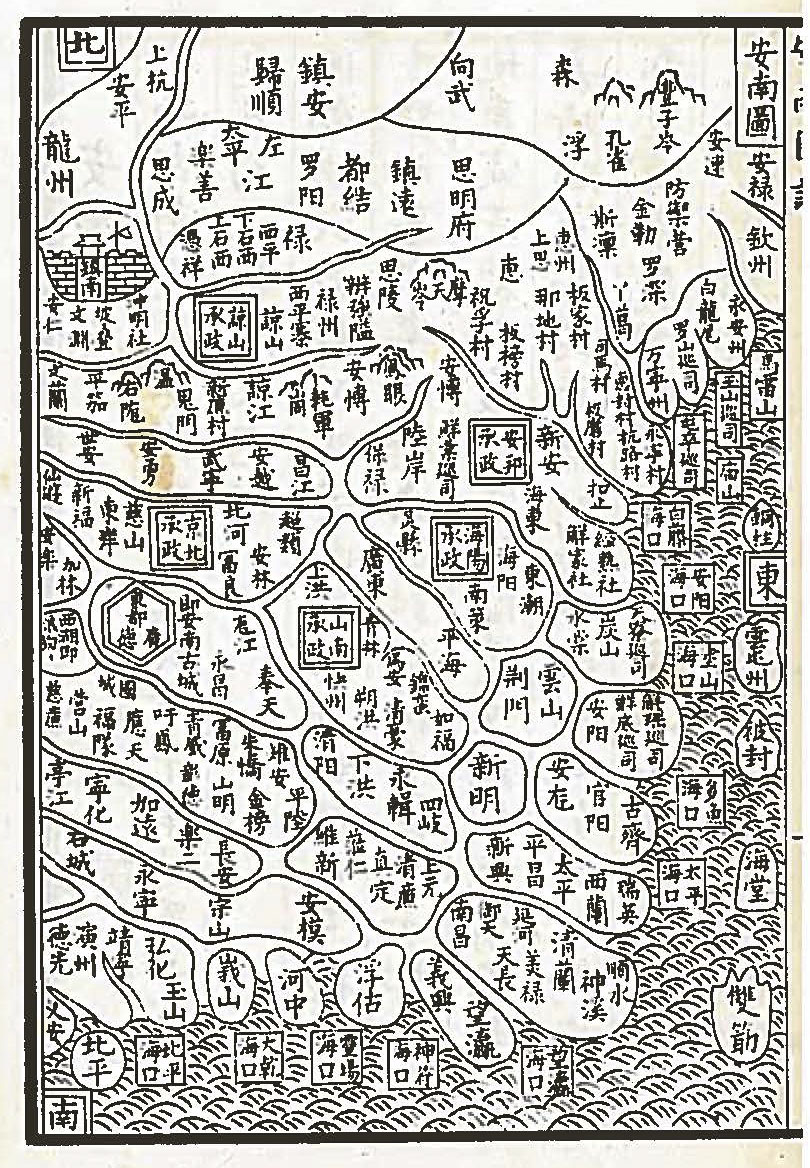
So from the perspective of the Ming, the status of An Nam changed over time, however that status was always established by the Ming court, and the Ming court never granted An Nam a status as an equal of the Middle Kingdom.
What is more, Lê Lợi never tried to seek or declare independence. And indeed, the documents from that time make this perfectly clear. As soon as the war with the Ming ended, Lê Lợi immediately re-established the tributary relationship with the Ming.
This is what every Vietnamese monarch before him had done and what every Vietnamese monarch after him would do until the second half of the nineteenth century when the French ended this suzerain-vassal relationship between “China” and “Vietnam.”
Therefore, in the early fifteenth century Đại Việt went from being a Ming tributary state to a Ming province and then back to a Ming tributary state, but it never became independent as Lê Lợi never attempted to break away from an empire and to enter “a pre-existing international order” as “equal to other, similar states” by seeking the approval of the other states in that international order, as the thirteen American colonies did in 1776, and as so many other polities have done since that time, including Vietnam in 1945.
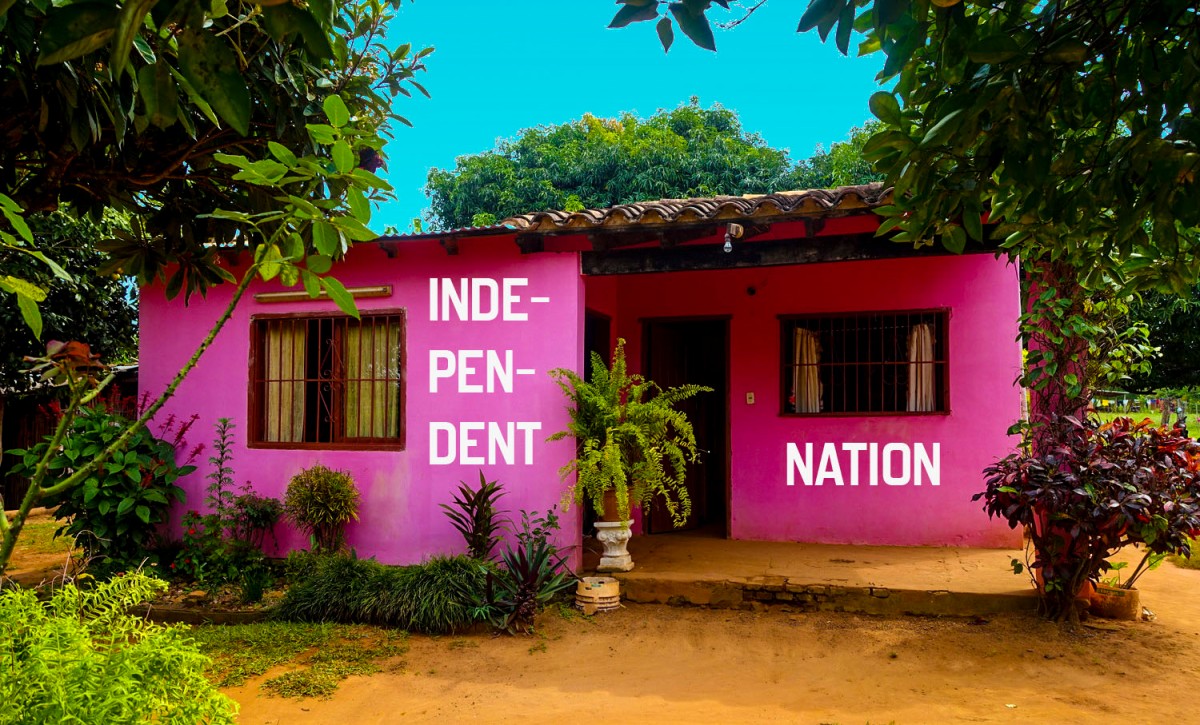
I realize that there are people who will argue back by saying that “yes, ok, but the Vietnamese believed/thought that they were independent.”
Regardless of what we might imagine people in the past thought, when it comes to declaring independence, it is what one does that is important.
I can “think/believe” that the apartment where I live is an independent nation, but unless I make that known to the US government, and the world community, and gain their recognition, this thought/belief will be meaningless, and my apartment will not be “independent.”
However, there is also simply an enormous amount of evidence which demonstrates that the idea of independence simply did not exist in premodern Vietnam (as it didn’t exist anywhere else in the world at that time). Yes, there are a few lines in the “Bình Ngô đại cáo” that have been interpreted that way, and we will get to those lines soon, but if one looks at Nguyễn Trãi’s collected writings, one will find document after document that is about establishing and maintaining the unequal tributary relationship.
There is a document in which the Ming are apologized to (呈情謝罪表文 Trình tình tạ tội biểu văn); a document in which gratitude is expressed to the Ming (謝恩呈情表文 Tạ ân trình tình biểu văn); a document in which the Ming are thanked for having invested the ruler of An Nam/Đại Việt with the authority to rule over the land (謝冊封表 Tạ sắc phong biểu); a document in which the people of the kingdom thank the Ming for the same reason (國人謝冊封表 Quốc nhân tạ sắc phong biểu); a document about presenting regular tribute to the Ming (歲貢表 Tuế cống biểu); documents that congratulate members of the Ming royal family (上皇太子表 Thượng Hoàng Thái Tử biểu, 賀尊皇太后表 Hạ tôn Hoàng Thái Hậu biểu), etc., etc.
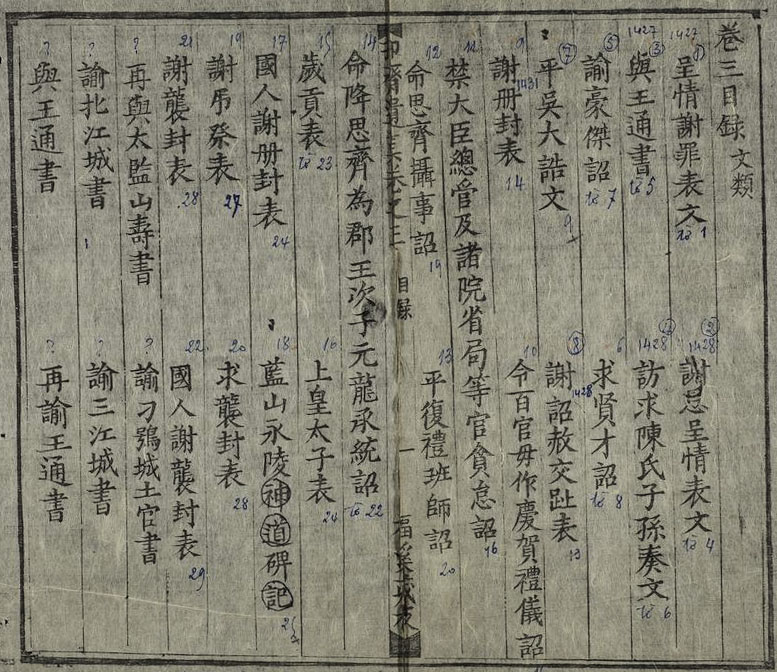
Again, I know that some people will argue back that “yes, ok, but they just did that so that the Ming would leave them alone and that therefore they could be independent.” Ok, but that doesn’t make Đại Việt “independent.” It was still a tributary state.
The thought/belief that existed in the minds of some members of the educated elite in Đại Việt in the early fifteenth century was that Đại Việt was a polity of a particular status that was connected to the Middle Kingdom (as there was no polity that they knew of that wasn’t connected to the Middle Kingdom, so how would they get the idea that this was even possible?).
Đại Việt was a “kingdom” (quốc), and kingdoms were ruled by “kings” (quốc vương). Kingdoms also paid regular tribute to the emperor of the Middle Kingdom, and kings received a seal of investiture from the emperor of the Middle Kingdom.
Again, Lê Lợi did not break away from this relationship to enter “a pre-existing international order” as “equal to other, similar states” by seeking the approval of the other states in that international order.
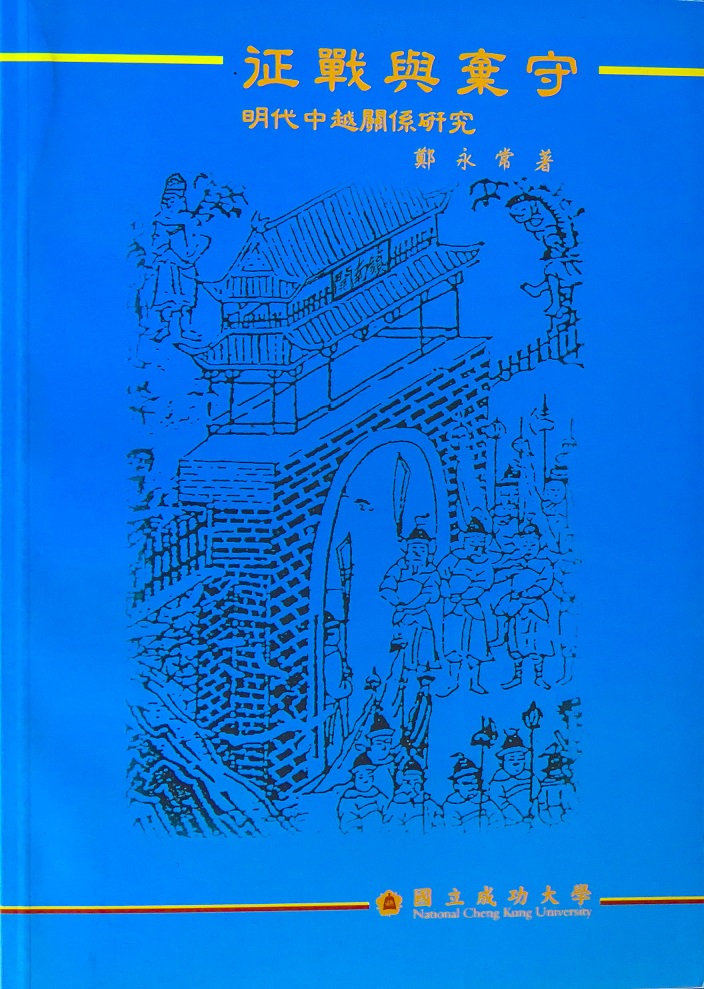
Of course this unequal relationship was not static. There were ways to re-interpret it, and to manipulate it, particularly for domestic gain (and this happened both in “China” and in “Vietnam”). However, the basic relationship of inequality (rather than independent equals) did not change.
Vietnamese rulers referred to themselves domestically as “emperors,” and Vietnamese and Korean officials both looked down on the Qing Dynasty as a “barbarian” dynasty, even though it ruled the revered Middle Kingdom.
On the Chinese side, there were always two views about An Nam at the Ming court. Some officials said that the people in An Nam were “barbarians” and that An Nam should therefore be left outside of the Ming domain as a “kingdom,” whereas others argued that An Nam used to be part of the Han and Tang domains and therefore rightfully belonged within the realm as a “province.”
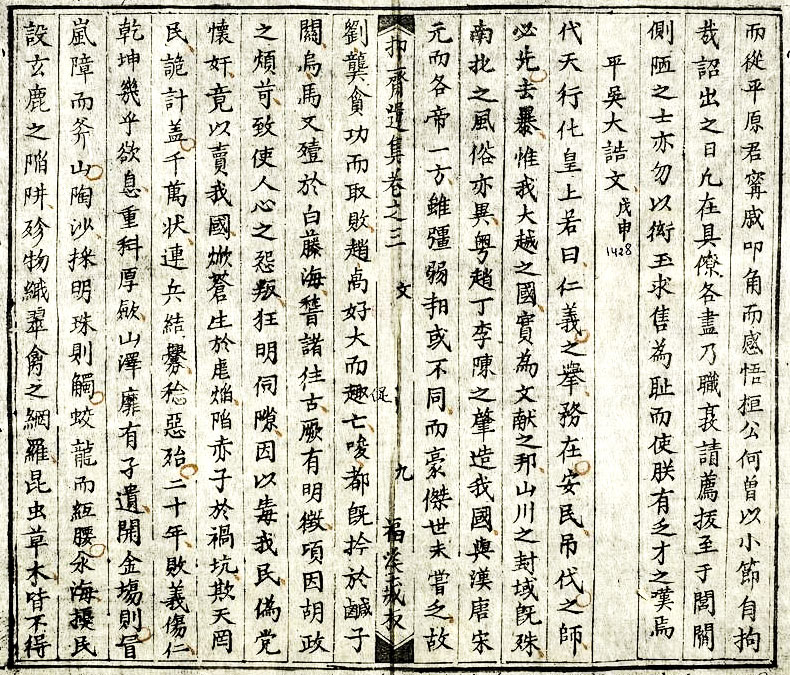
Nguyễn Trãi, by contrast, argued in his “Bình Ngô đại cáo” that Đại Việt should be a “kingdom” (and he never said that it should not be in a tributary relationship with the Middle Kingdom) because it was a “domain of civility” (文獻之邦 văn hiến chi bang) just like the Middle Kingdom.
To quote:
“Our kingdom of Đại Việt is truly a domain of civility.
Just as territorial areas are distinct, so are the customs of the North and South also different.
With the establishment of our kingdom by the Triệu, Định, Lý and Trần, together with the Han, Tang, Song and Yuan [we] have each empired over a region.”
However, in writing to a Ming Dynasty military officer, Nguyễn Trãi expressed this idea of Đại Việt as a place that should not be under direct Ming rule in very different terms:
To quote:
“From the time of antiquity, the rule of emperors has not surpassed the Nine Regions, and Giao Chỉ/Jiaozhi [i.e., an old name for “Vietnam”] was outside the Nine Regions. In examining into the past, it is obvious that this is not the Middle Kingdom’s land.”
(自古帝王之治不過九州,而交趾乃九州之外。考之於古,其無中國之地明矣。)
There is nothing here about Đại Việt being a “domain of civility” or of there being any emperors there. Instead, Nguyễn Trãi used information from Chinese antiquity to make his point.
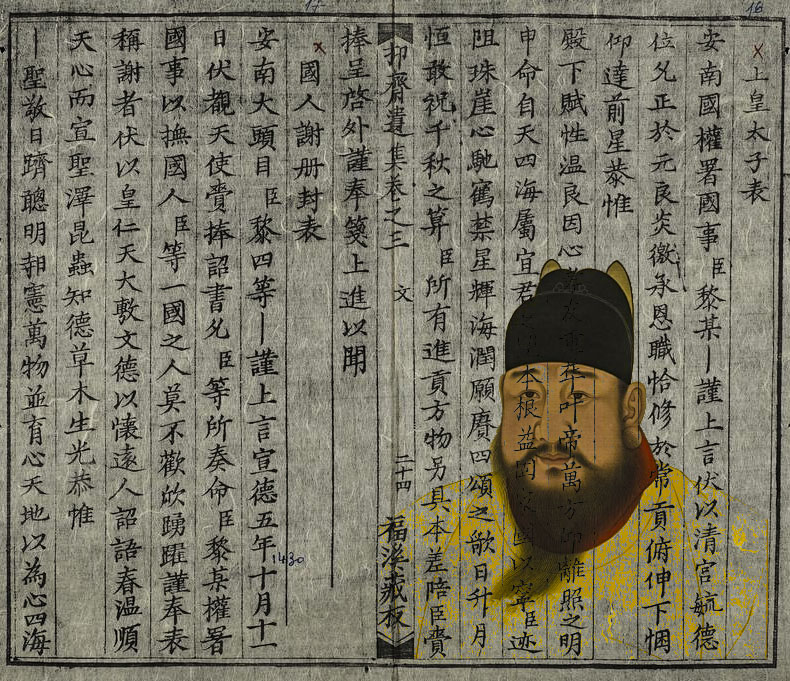
In other words, there were multiple discourses. Educated Vietnamese talked about their land in one way, and talked about it with Chinese in another way.
Ming dynasty officials, meanwhile, talked about An Nam in different ways, but the way in which they expressed the idea that An Nam should be a separate kingdom was the opposite of the way that educated Vietnamese did.
Some Ming officials felt that An Nam should be a separate kingdom because it was a barbarian land, whereas Nguyễn Trãi argued that its separateness was grounded in it being a domain of civility, that is, a land in which the moral beliefs and cultural and ritual practices of the educated elite of the Middle Kingdom were also upheld.
The existence of multiple discourses does not equal independence. In fact, it prevents independence from ever emerging.
Independence, that is, breaking away from an empire to enter “a pre-existing international order” as “equal to other, similar states” by seeking the approval of the other states in that international order is only achievable when people speaking a single discourse talk to each other and agree with each other.
Nothing like this happened, nor did such conditions exist, in fifteenth century Đại Việt.
So let’s now move on and start looking at what conditions did exist at that time and what people did do. We will start by looking at what the “Bình Ngô đại cáo” actually was – a “đại cáo.”


This Post Has One Comment
_ I think , tributary states are quasi independant ; as far as I know ( undocumented ) the tribute system is just a formal relationship : first the tribute is a kind of duty to get permission to trade with ” China ” and second , the new ruler is bestowed recognition from Imperial ” China ” , that confers him prestige with his own subjects . ” China ” most of the time did not interfere in internal affairs of tributary states
_ văn hiến basically means cultural heritage ( sách vở văn chương của một đời nào hay của một người hiền nào còn lại để cho người xem mà biết được chuyện cũ _ THIEU CHUU dictionary ) ; văn hiến chi bang should be translated by ” civilized ” land , land of ( Chinese ) culture
_ when tribute – bringing delegations were sent to China , alongside came literati who took part in literary jousts ; if they acquitted themselves brilliantly and their gifts agreed the emperor , their country was bestowed the label of văn hiến chi bang
https://en.wikipedia.org/wiki/Sinocentrism
https://en.wikipedia.org/wiki/File:Tenka_Qing.png
_ what is the importance of that label ? to get the qualification of tributary states ( triều 朝 cống 貢 quốc國 ) Apart of the above mentioned advantages , they are promised assistance from China , in case of need . It was the case of An nam and Korea , they had a close relationship to China . Some times ,when they were attacked ,China had to send its armies and make huge financial expenses to fulfill its duty as overlord .
_ An nam and Korea seemed to be the only countries which used literary or classical Chinese ( văn ngôn ) as administrative and literary lingo